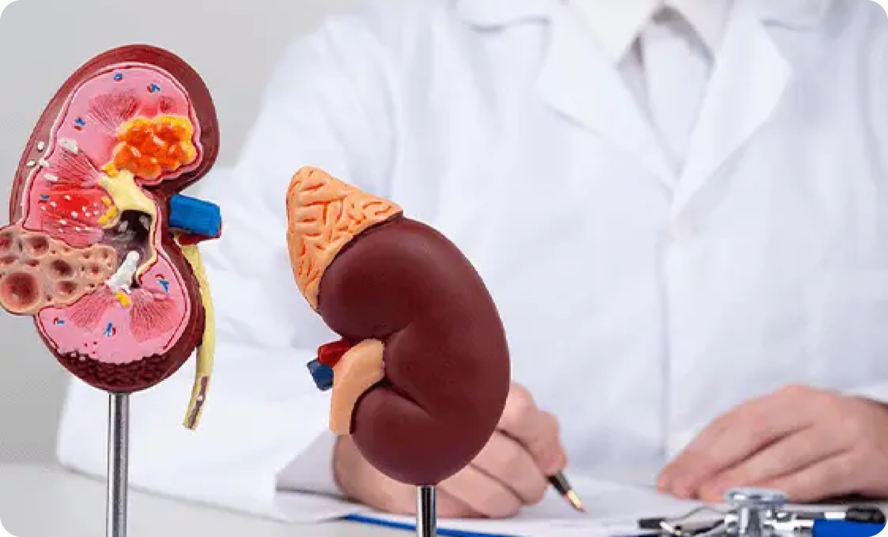Kidney Transplant - Overview
Why Are Kidneys Important?
Kidneys filter the blood and eliminate metabolic by-products from the body via urine. The urine is stored in the urinary bladder and then excreted from the body. Many different conditions may interfere with the function of our kidneys, and it may not be always possible to determine the cause of your kidney failure. If your kidneys are not functioning properly, metabolic by-products will not be removed from the blood. If this problem persists, you may feel very sick (even die).
What Is Kidney Transplant?
Kidney transplantation is the surgical management for renal failure, also known as end-stage kidney disease.
The transplanted kidney may come either from a healthy living individual or a deceased donor. Most of the time, it is not necessary to take out the non-functional original kidneys.
What Are The Benefits Of Kidney Transplant ?
A successful kidney transplant eliminates the need for dialysis. Many patients who had a successful kidney transplant report an improvement in their quality of life. There is evidence to support that compared to patients who undergo dialysis, a functioning transplanted kidney extends the life-expectancy of patients with end stage kidney disease
A successful kidney transplant may improve your blood counts and energy levels. The strength of your bones, your growth, and appetite may also improve. You may enjoy a less restricted diet.
Who Can Donate a Kidney?
Based on our past experience and literature evidence, the best outcome is achieved when the kidney is harvested from a matched living donor. The donor can be Parents, Children, Siblings, Spouse and Grandparents.
Patients who are eligible for kidney transplant are included in a waiting list for cadaver kidneys. If no living donor is available.
The criteria used to select a recipient of a donor organ include tissue-match between donor and recipient, waiting time on the list and recipient’s age among others. It may take several years for a suitable organ to be found.
The type of the donor organ may have a significant effect on the outcome of the transplantation procedure.
What are the advantages to a recipient of a kidney from a living donor.
Studies have shown that people who receive a kidney from a living donor typically receive a better-quality organ because it is coming from a healthier person. A kidney from a living donor is immediately transplanted into the recipient but a deceased donor kidney is stored and often transported long distances. Kidneys from living donors function, on average, about twice as long as kidneys from deceased donors. The transplant can also be planned as “elective” surgery and can be done when the recipient is in the best possible health. In some cases, if a recipient has a living donor he or she can have a transplant before starting on dialysis. This can be very important to the recipients overall health and long-term survival. Although lifesaving, dialysis can cause many health problems and the longer the patient stays on dialysis the greater the risk of developing these problems. In addition to the benefit to the recipient. every time a kidney transplant is done with a living donor kidney there is one less person on the waiting list for a deceased donor kidney. This contribution to the pool of donors helps others waiting on the list indirectly.
